With new technologies revolutionizing data collection, wildlife researchers are becoming increasingly able to collect data at much higher volumes than ever before. Now we are facing the challenges of putting this information to use, bringing the science of big data into the conservation arena. With the help of machine learning tools, this area holds immense potential for conservation practices. The applications range from online trafficking alerts to species-specific early warning systems to efficient movement and biodiversity monitoring and beyond.
However, the process of building effective machine learning tools depends upon large amounts of standardized training data, and conservationists currently lack an established system for standardization. How to best develop such a system and incentivize data sharing are questions at the forefront of this work. There are currently multiple AI-based conservation initiatives, including Wildlife Insights and WildBook, that are pioneering applications on this front.
This group is the perfect place to ask all your AI-related questions, no matter your skill level or previous familiarity! You'll find resources, meet other members with similar questions and experts who can answer them, and engage in exciting collaborative opportunities together.
Just getting started with AI in conservation? Check out our introduction tutorial, How Do I Train My First Machine Learning Model? with Daniel Situnayake, and our Virtual Meetup on Big Data. If you're coming from the more technical side of AI/ML, Sara Beery runs an AI for Conservation slack channel that might be of interest. Message her for an invite.
Header Image: Dr Claire Burke / @CBurkeSci

Explore the Basics: AI
Understanding the possibilities for incorporating new technology into your work can feel overwhelming. With so many tools available, so many resources to keep up with, and so many innovative projects happening around the world and in our community, it's easy to lose sight of how and why these new technologies matter, and how they can be practically applied to your projects.
Machine learning has huge potential in conservation tech, and its applications are growing every day! But the tradeoff of that potential is a big learning curve - or so it seems to those starting out with this powerful tool!
To help you explore the potential of AI (and prepare for some of our upcoming AI-themed events!), we've compiled simple, key resources, conversations, and videos to highlight the possibilities:
Three Resources for Beginners:
- Everything I know about Machine Learning and Camera Traps, Dan Morris | Resource library, camera traps, machine learning
- Using Computer Vision to Protect Endangered Species, Kasim Rafiq | Machine learning, data analysis, big cats
- Resource: WildID | WildID
Three Forum Threads for Beginners:
- I made an open-source tool to help you sort camera trap images | Petar Gyurov, Camera Traps
- Batch / Automated Cloud Processing | Chris Nicolas, Acoustic Monitoring
- Looking for help with camera trapping for Jaguars: Software for species ID and database building | Carmina Gutierrez, AI for Conservation
Three Tutorials for Beginners:
- How do I get started using machine learning for my camera traps? | Sara Beery, Tech Tutors
- How do I train my first machine learning model? | Daniel Situnayake, Tech Tutors
- Big Data in Conservation | Dave Thau, Dan Morris, Sarah Davidson, Virtual Meetups
Want to know more about AI, or have your specific machine learning questions answered by experts in the WILDLABS community? Make sure you join the conversation in our AI for Conservation group!
No showcases have been added to this group yet.
- 0 Resources
- 1 Discussions
- 5 Groups
Technologist and Visual storyteller focusing on social, conservations issues.


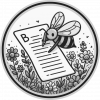
- 1 Resources
- 47 Discussions
- 17 Groups
- @Valentin_Stefan
- | He/Him
Interested in emerging technologies related to camera traps for pollinators
- 0 Resources
- 4 Discussions
- 18 Groups
- 1 Resources
- 1 Discussions
- 11 Groups
Interested in bioacoustics
- 0 Resources
- 0 Discussions
- 14 Groups
- @NG
- | She
I am a Conservationist and Ornithologist passionate about biodiversity conservation and environmental sustainability.
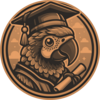
- 0 Resources
- 1 Discussions
- 7 Groups
I am Venkat Tarra, a Senior IT Consultant. I specialize in Architecting Middleware, Integration, AWS cloud and AI-ML solutions. Outside of work, I love travelling and spending time with my family.
- 0 Resources
- 0 Discussions
- 1 Groups
- @soumyabhatta
- | He
Mainstream IT Pro looking for a change to conservation tech

- 0 Resources
- 18 Discussions
- 1 Groups
Clemson University
- 0 Resources
- 0 Discussions
- 7 Groups
- @WyattB
- | He / him / his
Data science and ML specialist
- 0 Resources
- 2 Discussions
- 7 Groups
- @Bijin
- | He/him
I am a high-school student who enjoys wildlife photography and the intersection between technology and conservation.
- 0 Resources
- 0 Discussions
- 2 Groups
- @claudlacroix
- | she/her
PhD fellow using deep learning to investigate marine fish acoustic signals and social behaviour.
- 0 Resources
- 1 Discussions
- 4 Groups
This exciting news article about The Global Wetland Project's FishID platform discusses the latest improvements and developments in using deep learning to identify individual fish species underwater. In addition to...
28 July 2020
Article
In this article from BearID Project, Director and Software Developer Ed Miller walks us through using their application to identify individual bears from photographs. Ed shows us how to easily use BearID remotely in the...
21 July 2020
Put your acoustic monitoring skills to the test in The Cornell Lab of Ornithology's Birdsong Identification Kaggle Competition. Participants will compete to identify as many bird vocalizations as possible in in...
8 July 2020
Conservation technology largely consists of two categories: tools to monitor and study wildlife and their habitats, and solutions to mitigate or prevent negative human impacts. The fight against poaching in particular...
4 June 2020
A couple months ago, we introduced you to the Footprint Identification Technique (FIT), a non-invasive way to build an identification algorithm from both wild and captive animals by photographing footprints. Today, we'...
3 June 2020
Funding
The 2020 Hackaday Prize competition has begun! This year, Conservation X Labs has partnered with the Hackaday Prizes as one of four nonprofits seeking tech-based solutions to urgent challenges. Conservation X Labs'...
26 May 2020
Article
We're excited to welcome the WildTrack FIT group to our community! Today, we'd like to introduce you to the Footprint Identification Technique (FIT) and share how you can incorporate this tracking method into your field...
6 May 2020
Funding
Want to compete in the iWildCam 2020 competition identifying species in camera trap images to support biodiversity monitoring efforts and automatic species classification model improvements? Because the Workshop on Fine...
4 May 2020
The 2020 Arm Research Summit is accepting submissions from all research disciplines focusing on the role of technology in solving global challenges. Submissions should reflect the potential of sustainable, secure, and...
24 April 2020
Article
At the 2018 London Illegal Wildlife Trade Conference, we announced the WILDLABS Tech Hub, an accelerator programme created to support the development and scaling of groundbreaking technological solutions addressing the ...
13 April 2020
Community Announcement
Our second WILDLABS Community Call took place on April 1st to continue the discussion started by Ben Tregenna in our Data Science group, in which he suggested the idea of submitting a collaborative entry to the X-Prize...
30 March 2020
Article
At the 2018 London Illegal Wildlife Trade Conference, we announced the WILDLABS Tech Hub, an accelerator program created to support the development and scaling of groundbreaking technological solutions addressing the ...
26 March 2020
August 2025
event
September 2025
event
event
event
event
October 2025
event
event
event
December 2025
event
March 2026
August 2024
July 2024
June 2024
May 2024
April 2024
event
17 Products
Recently updated products
| Description | Activity | Replies | Groups | Updated |
|---|---|---|---|---|
| Hi Ellie, thanks for your interest. So I have two possible explanations why the camera traps I used did not release, even though I found otter droppings directly in front of my... |
|
AI for Conservation, Animal Movement | 4 years 11 months ago | |
| Samara P. El-Haddad Wildlife Conservation Junior Specialist at Lebanon Reforestation Initiative (LRI)... |
|
AI for Conservation, Community Base | 5 years ago | |
| How neat, thanks for sharing! We'd love to hear more about your drone project once it's underway, please keep us updated on that one! |
|
AI for Conservation, Emerging Tech | 5 years 1 month ago | |
| Great talk! I thoroughly enjoyed it. Some high schoolers have done small AI projects(s) and have interest in the wildlife. What resources would you all suggest to further... |
|
AI for Conservation, Camera Traps | 5 years 1 month ago | |
| Author: Jody Tucker, U.S. Forest Service, Pacific Southwest Region Carnivore Monitoring ProgramFigures below text in order (Fig 1... |
|
AI for Conservation, Emerging Tech | 5 years 1 month ago | |
| What better way to celebrate Endangered Species Day 2020 than try a new technology to protect them? If you're planning to be out and... |
|
AI for Conservation, Emerging Tech | 5 years 3 months ago | |
| DeepForest docs are here. https://deepforest.readthedocs.io/ Welcome to have a look. My experience is that individual trees cannot be distinguished in satellite... |
|
AI for Conservation | 5 years 4 months ago | |
| Steph, thank you so much for this, this is wonderful :) Really, really apreciate you sharing this with me :) Diving into all of the wonderful resources from you, thank you so very... |
|
AI for Conservation | 5 years 4 months ago | |
| A call put out over on Twitter by Jesse Alston might be of interest here - both for conservationists and grad students. Looks like... |
|
AI for Conservation | 5 years 4 months ago | |
| This can be done, happy to help :) But I think I need to understand the situation a little bit more. Do you already have the data for training / inference? Do you have any... |
|
AI for Conservation | 5 years 4 months ago | |
| Hi there this post on Conservation X labs recently came up on designing softwarre for individual horse recognition: https://... |
|
AI for Conservation | 5 years 5 months ago | |
| Wildlife Insights launched their online platform hosting over 4 million camera trap images. They use AI to automatically classify the... |
|
AI for Conservation | 5 years 8 months ago |
Amazon Sustainability call for proposals — Fall 2022
20 September 2022 11:37am
Google.org commitment on using AI to accelerate progress on global development goals
16 September 2022 6:31pm
Research Software Engineer, Climate & Sustainability, IBM
16 September 2022 2:18pm
CamTrap Ecology meets AI conference
14 September 2022 4:47pm
Join the BirdNET team!
9 September 2022 2:43pm
Postdoc: Interpretable ML for species-based image classification
1 September 2022 9:34pm
New paper - 'soundClass: An automatic sound classification tool for biodiversity monitoring using machine learning'
1 September 2022 8:53pm
Introducing G.AI.A: Artificial Intelligence and Planetary-Scale Environmental Management
31 August 2022 10:25pm
Mara Predators Hackathon
30 August 2022 1:28pm
Research Associate in Conservation Ecology at QUT
29 August 2022 2:54pm
Conservation Technology Research Internship
26 August 2022 4:58pm
Postdoc in the application of AI for wildlife conservation & management
26 August 2022 11:47am
Online Hackathon: Predators conservation in the Maasai Mara
22 August 2022 10:32am
Ceres Wild Rhino application
22 August 2022 1:29am
Lead Software Engineer for ARISE
19 August 2022 8:22am
Lead Software Engineer, Wildlife Insights
10 August 2022 11:06pm
Research Technician - Unoccupied Aircraft Systems Pilot and Geospatial Analyst
10 August 2022 10:40pm
Building a simple AI-powered, human-in-the-loop system to manage wildlife camera trap images & annotations
10 August 2022 8:12pm
3yr Postdoctoral Associate: Remote Sensing and Unoccupied Aircraft Systems
10 August 2022 5:29pm
Catch Up with the WILDLABS Variety Hour: August 2022
10 August 2022 11:44am
Technology may solve climate change problems, but it’s also causing them | VentureBeat
8 August 2022 11:26am
Can deep learning identify seabirds? (species, within-species, individual)
25 May 2022 8:24pm
21 June 2022 4:55pm
Update: I asked the same question on twitter so I'm sharing answers I got there:
Let's chat! We've been training models to run on trail cameras as images/videos are captured, and have worked on migratory birds along coastlines (more info: https://t.co/NzW4GO2Wqp)
— Henrik Cox (@henrik_cox) June 1, 2022
21 June 2022 5:41pm
Hi Yvan,
I dropped this into the AI for Conservation slack group as well, you got this reply this morning:

Steph
8 August 2022 11:12am
Hi Yvan,
If you find something which reaches your expectation and especially the ability to identify individual with plumage patterns I will be intereted.
In the same idea that Ultralytics, there is :
Lobe · GitHub
Machine Learning Made Easy. Lobe has 11 repositories available. Follow their code on GitHub.
Which could probably answer your first and second requirements.
And find here a great website showing all the IA-based camera software, you may find solutions or contact throw this list:
Tiger, Tiger, in the Night... Now Visible in Real Time
5 August 2022 4:07pm
7 October 2024 9:47am
7 October 2024 9:55am
What is embedded ML, anyway?
5 August 2022 3:48pm
Biological Data Science Summer Workshop
5 August 2022 3:03pm
Wild Me is hiring
Identify animal from Image
2 August 2022 1:37am
2 August 2022 2:54am
Hi Jitendra.
If they are still images, many people are using Megadetector to analyze their images. I'm not sure how it will do in species classification, but it can tell you if there are images of interest in the shots. Others here can probably give you more detailed instructions on how to use it to batch process camera trap images.
2 August 2022 10:24am
Have you considered creating a Kaggle competition? If you already have lots of images, and some that have been labelled, then this could be a good way to get people working on a solution
CERES TAG
22 July 2022 3:36am
Earth Species Project - Senior AI Research Scientist
15 July 2022 6:40pm










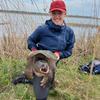

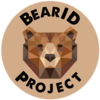
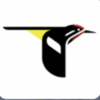
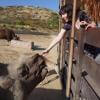







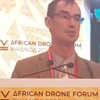

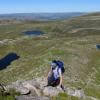











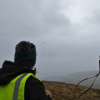










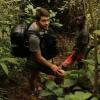






29 September 2022 4:05am